People of any age can turn to self-injury, it isn’t a ‘teen thing’.
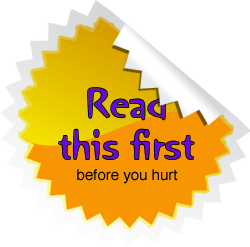 Before discussing adult self-injury, we should first clarify what the word ‘adult’ might mean. Generally it might refer to age, and for the most part this article is aimed towards people who are older in years. But ‘adult’ can also relate to responsibility, and at LifeSIGNS we are only too aware that there are many younger people who live very adult lives, and who face responsibilities and challenges far beyond their years. So whatever your age, if you consider yourself to be living an adult life, then these words are for you.
Before discussing adult self-injury, we should first clarify what the word ‘adult’ might mean. Generally it might refer to age, and for the most part this article is aimed towards people who are older in years. But ‘adult’ can also relate to responsibility, and at LifeSIGNS we are only too aware that there are many younger people who live very adult lives, and who face responsibilities and challenges far beyond their years. So whatever your age, if you consider yourself to be living an adult life, then these words are for you.
We hope by now we’ve managed to get the message across that self-injury isn’t a ‘teen thing’, and that people of all ages might rely on self-injury in order to cope. While younger and older people share many of the same challenges in life and with their self-injury, there are also different difficulties to face by people at different stages in their life.
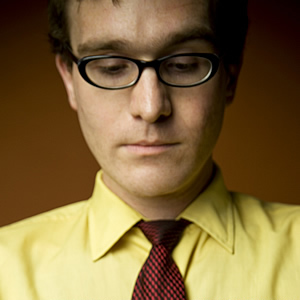 Perceptions
Perceptions
Because self-injury is often perceived as something ‘young people’ do, older adults can feel that it is something they should have ‘grown out’ of. These feelings can be even more difficult when an older person has turned to self-injury for the first time, rathe than discovering self-injury in their youth.
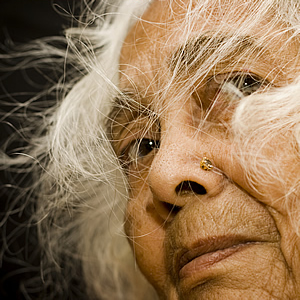 The media
The media
Although increasingly willing to raise awareness about self-injury, the media still focus on young people far too much. Even television programmes that include a self-injury storyline either tend to be programmes aimed at young people, or focus on a young person self-injuring. This sends out an inaccurate message, and increases feelings of isolation in older people who self-injure.
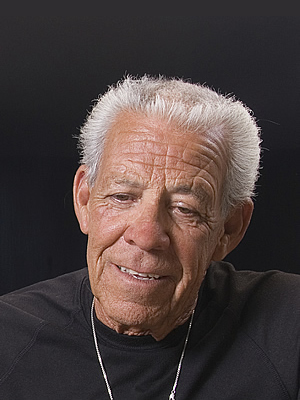 Less help
Less help
If you are older, it might feel that there are fewer organisations out there that can help you. There seems to be a lot of mental health and support related organisations that cater to people under 25; but if you’re over 25 it can be more difficult to find somewhere that you feel you ‘belong’. Often, funding for projects and support services is literally ring-fenced for the government’s or sector’s definition of ‘young people’, meaning that organisations are more likely to get funding / budgets if they develop services for young people.
Resources, funding, and the attitudes of some healthcare professionals, may make it more difficult for older people to obtain the professional help they need.
Young adults, once they hit a certain age, may find they lose vital support and resources that they had been relying on.
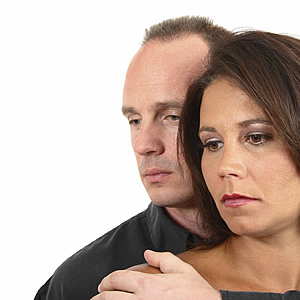 Friends and loved ones
Friends and loved ones
Friends / loved ones of adults may be less likely to be educated surrounding the subject of self-injury, making it more difficult for an adult to bring up the subject with loved ones.
Also, whereas young people are encouraged to talk about their self-injury with parents and loved ones, adults have to consider just who they can turn to.
 Responsibilities
Responsibilities
Adults, in general, have more responsibilities than young people. Whereas young people are usually the ones who are cared for, quite often adults find that they are only ‘carers’ and are not ‘cared for’ themselves. This not only means that they may receive less support, but it also means they have a responsibility to maintain their caring roles, while attempting to also care for themselves.
When a young person finds themselves in a caring role, the burden can be even greater. They are at a time of their lives when they are supposed to be the one being cared for, and yet while their friends might be living the ‘normal’ life that young people need, they find they are forced to take on adult responsibilities. This is damaging not only because they tend to miss out on the ‘fun’ side of youth necessary for emotional balance and wellbeing, but also because they don’t yet have the life experience needed to cope with such responsibilities.
This is also true for young people who although may not have to care for others, neither are they cared for themselves. Some young people are left to fend for themselves, without the support, nurturing and guidance necessary for emotional balance, growth and wellbeing. It’s not surprising that life can feel overwhelming.
Shame and secrecy
Considering all these matters, shame and secrecy, while common in anyone who self-injures, may be even more burdensome for older people.
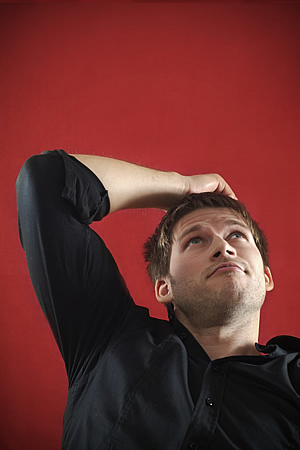 Time
Time
Adults who are juggling careers / families / finances may have less time for themselves than some younger people, making it more difficult for them to engage in hobbies and activities that can enhance health and happiness and provide much needed distraction.
Similarly, young people forced to cope with adult responsibilities will not have the time they need for themselves. They may have to care for others, or they may have to juggle school with a job and household responsibilities. We don’t mean the usual responsibilities that a young person might expect, such as household chores, helping care for younger sibblings occasionally, or working to earn money for themselves. We’re talking about people who run their households, or are the sole carer for another person, or who are forced to work in order to financially support others. These people are far less likely to have the time they need to care for themselves.
The feelings of loneliness, isolation and lack of time can be even more enhanced for young people in these situations, because they are only too aware that their lives are not the norm, and that their peers are leading a far more care-free life.
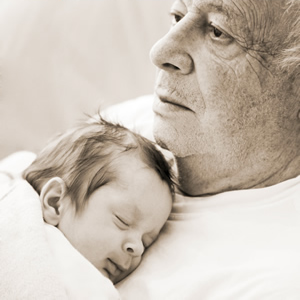 Drivers
Drivers
Because of their increased life experience and more complex daily lives, adults (or young people living with adult responsibilities) may have a wider range of ‘drivers’ that could lead to self-injury.
How we can help
Whatever your age or responsibilities, you are not alone. People of all ages and in all kinds of circumstances turn to self-injury in order to cope. And everyone deserves help and support.
LifeSIGNS is a fully inclusive organisation and our members range from young teenagers to older people who have retired. Our resources are written for ‘people’ who are affected by self-injury, and we offer guidance and support for everyone.
Whether you need advice for moving away from self-injury, distraction techniques, hiding scars, obtaining professional help, talking to loved ones, getting through the urge to self-injure, or just somewhere to talk about the things that are going on your life, we are here for you.
We are constantly looking to improve and increase the resources we offer to people who self-injure. So whether you’re an adult in years, or a young person living an adult life, we’d appreciate hearing from you. If you’d like to share your own personal story with our members, or if you have suggestions for ways in which we could improve our resources to help more people like you, or if you’d like to challenge or discuss any of the points raised in this article, then please do contact us.

166 Comments
andrew
January 20, 2019I think I. Need help
Dave
December 28, 2018I am in my early 40s. People always believe me when I tell them the cat did it. I don’t have a cat.
Tim
November 9, 2018This is new for me and I keep having to create more elaborate stories to cover it. People know but no one ever says anything. They just believe my lies.
I want to stop and understand what the hell is wrong with me. My best friend knows and she is helping me but everyone else believes the lies as it is too easy to hide and no one wants to believe adults have these type of issue.
Lacy
November 8, 2018Another thing people don’t realize about adults who cut is that they are usually REALLY good at hiding it. Younger people often get help when they get caught. If you have been doing it and successfully hiding it for 20 years, like me, you know how to keep it hidden. If no one knows, it’s harder to stop.
Kathy Russell
November 7, 2018I began to cut myself when I was in my 40s. the feeling of being trapped by obligations, no way out. Bi-polar child , depressed spouse, sole support of family. I sway between suicide and desertion.
Laz
October 6, 2018I’m in my late 40s. When I’m stressed, I still catch myself digging my fingernails into my arm. Despite going years without doing it, I have banged my head a few times recently after abuse.
Laurence
September 23, 2018I want to start self harming as a way to punish as I hate myself so much. I need to do this. I have found myself gathering instrumentsnin preparation. Is this wrong? It feels the right thing to do to help me cope with my life.
Jul
August 7, 2018I have been self harming since I was in the 5th grade. I am now a young adult. My dad and older brother were very abusive, and I’ve been abused by different people. I still self harm when my mind gets clogged. It’s become my coping mechanism. When my mom found out she threatened to throw me in a hospital and was angry at me. My dad tried to beat me when he found out. So I no longer tell anyone about it.
Veron
August 3, 2018I’m in my 40s and I hurt myself. When I got up the nerve to ask for help all the Dr said was. Oh you just need thearapy for that and brushed under the rug. I really want help and now ashamed to even ask eleswhere
Wedge
August 28, 2025I can understand how it felt your doctor was brushing it away. Your doctor doesn’t really deal with SI or mental health a lot, what a doctor does is *refer* you on to a specialist. So when your doctor said you needed therapy, they should have arranged a referral to a specialist or put you on a waiting list, or advised about paying for private counselling. I hope you can find a counsellor yourself, or return to your doc and say ‘Yes, I’m ready for therapy, please refer me’.
Shel
June 24, 2018I have recently had a dip in my MH. I would normally SI. The feeling was so strong to do it but I managed to refrain. The thing that stopped me was that I am going on holiday and the scars would show. Had I not been going away, I would have given in to the need.
I am actually proud of myself for not doing it
Anon
June 16, 2018Would a parent’s self harm moving from “explainable” injuries to more (hidden from children obvs) trigger social services into action?
J
June 6, 2018I’m nearly 40 and I used to cut myself when I was younger and found myself doing it again now that I’m 38. For me the physical pain takes away the emotional pain and it makes me forget why I was upset or hurt or angry. I’m a single mother, in a relationship and he verbally abuses me and his words get to me sometimes.
Cheri
May 24, 2018Anon, don’t be ashamed to say you’ve hurt yourself for the first time. You are very brave for sharing it. You will not get much more than what you said your doctor told you about being safe and trying not to do it again. She should have referred you to a therapist at the very least. I am in my 50s, and I self harmed first in my 20s, then not again until I was in my 40s. I still struggle with it. Sometimes I can go a long time without, sometimes not. I have so much internal pain that I can’t see. I am screaming on the inside. I can tend to the *physical* kind of pain. I cand bandage it and watch it heal even if the internal wounds are still there. That’s what my therapist is for. Get yourself into therapy. It will help.
Mah
May 15, 2018Hi, I self harm to deal with my stress levels. What can I do to control it or stop it
Kris
April 5, 2018I went from cutting to drugs, thought that falling in love was the answer. He abused me and I stayed. I was molested at a young age. I am nearly 60 and can’t stop. I am afraid of OVERDOSING or having a heart attack. I hate myself
Liz
March 14, 2018I’ve never done it this before
I feel like I shall do it again
Shell
March 8, 2018I have just stumbled across this page. I have self harmed since I was 13/14. I am now over 40.
I have an amazing GP but find any other help is not very forth coming. It is just me and my GP.
I do get embarrassed about it and do think I should have grown out of it but I find it’s the only way to deal with things. That and control my food. I got asked today if I was dyslexic, which I am and was told that there could be a link between the two.
It’s helped me knowing this site exists.
Steph
March 8, 2018I have been punching myself for years, and I now realise my father hit me from the age of 6 until 14 when I left home. I am one one fucked up person.
Wedge
March 8, 2018You’re not fucked up, you were in a fucked up situation and you created a response to help you deal with the abuse from your father. I hope you can work through these difficult memories now as an adult and adapt – you deserve help and support, and health and happiness.
Anon
February 22, 2018Hi I’m a woman in my thirties, and have hurt myself. I am ashamed of it and have had the urge more and more. When I told my doctor she said stay safe and dont do it again. I asked for help and never got it. I now dont know where to turn.
Mike
February 17, 2018Al, I am sorry for your situation and how it all went down. Please see that others are here for you and we will believe you/